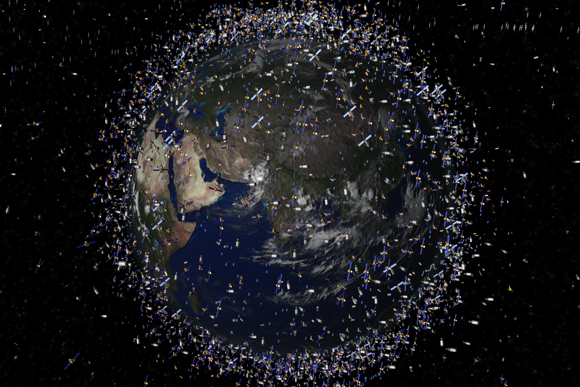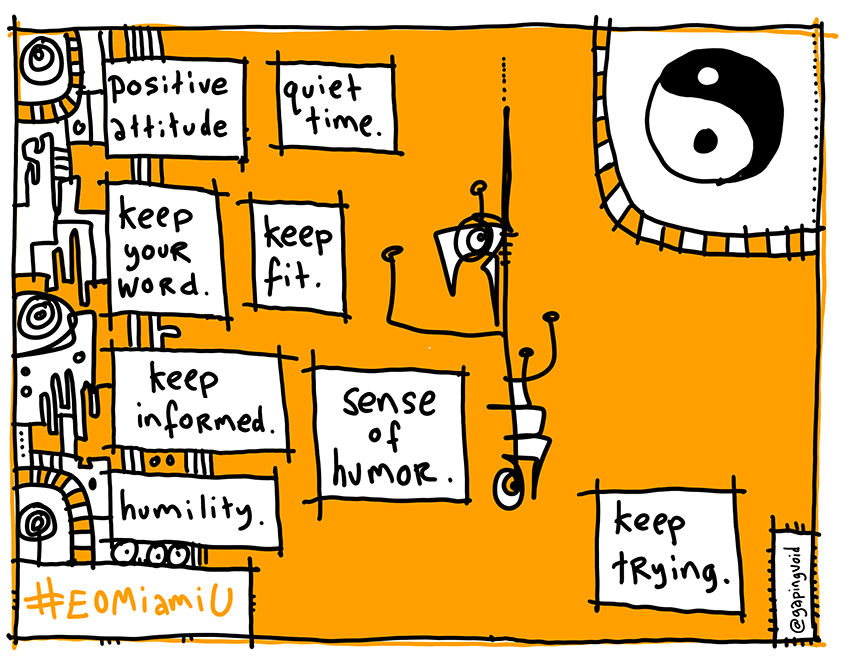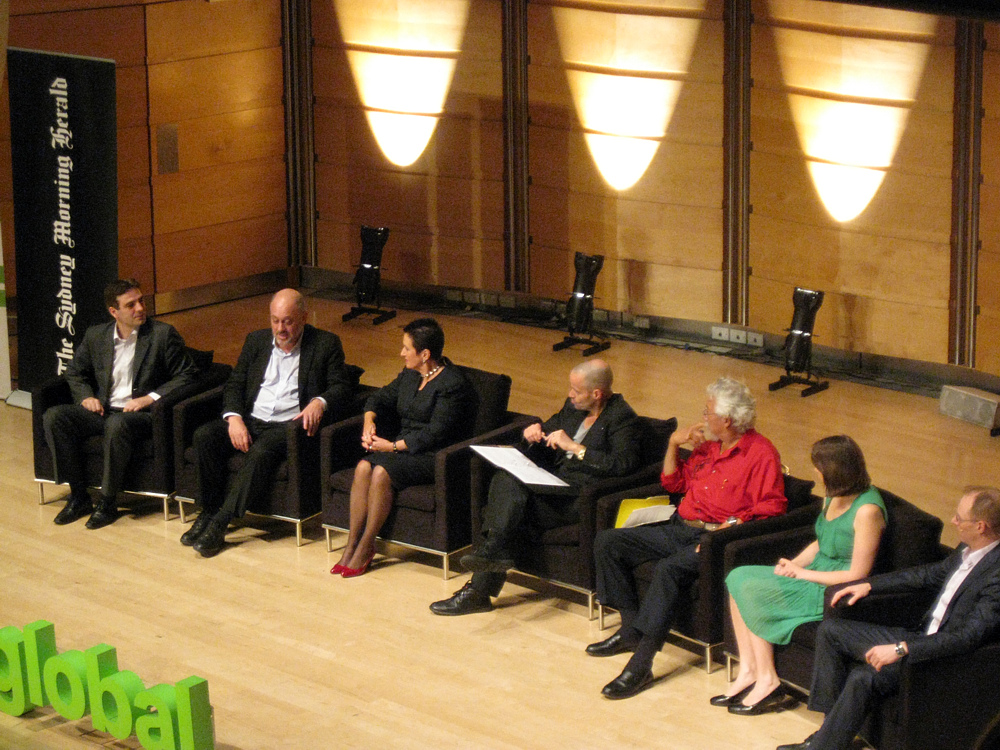Can't sleep tonight, thoughts with my French cartooning colleagues, their families and loved ones #CharlieHebdo pic.twitter.com/LqIMRCHPgK
— David Pope (@davpope) January 7, 2015
Category: Stuff that matters
Climate Change Denial Machine
The Koch Brothers & Their Amazing Climate Change Denial Machine
The new FU policy
Watch it. So worth the time.
Finally – a policy covering both humanity AND shareholders.
(and if you are not watching this you are being silly 😉 )
Please go change the world
He wrapped up his talk one this fabulous note:
My great hope is that some of you answer it by working to end poverty, boost shared prosperity, and battle climate change. But whatever you do, please remember that the time is now for all of us to work together to bend the arc of history toward justice.
The great anthropologist Margaret Mead once said, “Never doubt that a small group of thoughtful, committed citizens can change the world; indeed, it’s the only thing that ever has.”
Be those citizens.Take it on. And please go change the world.
Thank you very much.
Remarks by World Bank Group President Jim Yong Kim, Ogden Lecture at Brown University, Providence, Rhode Island, United States, March 7, 2014.
Ludlam for PM
Senator Scott Ludlam welcomes Abbott to WA. The most ingenious brilliant speech ever. Epic. Intelligent. Senses nourishing.
1/2 million views in 3 days.
Climate Change & the parallel of slavery
In “Climate change as a cultural and behavioral issue: Addressing barriers and implementing solutions” Andrew J. Hoffman draws a very timely analogy –
Looking at Climate Change through the parallel of slavery:
“Climate change today still resides in the ‘pre’ social fact phase, awaiting public acceptance. But just how big a shift will this be? To that point, I turn to the abolition of slavery.
In short, the magnitude of the cultural and moral shift around climate change is as large as that which accompanied the abolition of slavery. Adam Hochschild, in his book Bury the Chains, makes the startling point that in the 18th century more than 75% of the world’s population was in slavery or serfdom. Humans were a primary source of energy and wealth, particularly for the dominant world power, Great Britain. Hochschild points out that “if you stood on a London street corner and insisted that slavery was morally wrong and should be stopped, nine out of 10 listeners would have laughed you off as a crackpot.” Abolition would lead to a collapse of the economy and their way of life. Abolitionism was a challenge to the underlying beliefs upon which the Empire was built. At the time, few people saw a moral problem with this critical institution. People simply did not believe, as we do today, that all people have a right to freedom and equality. Slavery was seen as the natural order of things, unquestioned and even supported by many through the words of the Bible. It took roughly 100 years to abolish slavery in the British Empire, and Hochschild points out that, by the end of the 19th century, slavery was, at least on paper, outlawed almost everywhere.
Now, flash forward to today. We live in a fossil fuel-based economy. Fossil fuels are our primary source of energy and support our entire way of life. As scientific evidence mounts that this critical institution is causing changes to the global climate, we are faced with a technological and social dilemma. Calls to end our dependence on fossil fuels are being met with the same kind of response as did calls to end our dependence on slavery: such a move would wreck the economy and the way of life that is built upon it. If you stood on a New York City street corner and insisted that burning fossil fuels was morally wrong and should be stopped, listeners would laugh you off as a crackpot. There is a vast physical infrastructure that depends on oil, and it cannot be simply replaced without great disruption. Abolition of the primary source of energy in the world is out of the question, both socially and technologically.
Just as few people saw a moral problem with slavery in the 18th century, few people in the 21st century see a moral problem with the burning of fossil fuels. Will people in 100 years look at us with the same incomprehension we feel toward 18th-century defenders of slavery? If we are to address the problem adequately, the answer to that question must be yes; our common atmosphere will no longer be seen as a free dumping ground for greenhouse gases and other pollutants. But this value shift will require humankind to come to terms with a new cultural reality.
The first piece of this reality is that humankind has grown to such numbers and our technologies have grown to such a capacity that we can, and do, alter the Earth’s ecological systems on a planetary scale. It is a fundamental shift in the physical order – one never before seen, and one that alters the ethics and morals by which we judge our behavior as it relates to the environment around us and to the rest of humanity that depends on that environment.
The second piece of that reality is that we share a collective responsibility and require global cooperation to solve it. The coal burned in Ann Arbor, Shanghai or Moscow has an equal impact on the environment we all share. The kind of cooperation necessary to solve this problem is far beyond anything we, as a species, have ever accomplished before. International treaties to ban land mines or eliminate ozone-depleting substances pale in comparison. Looking at climate change through the parallel of slavery helps us to see the magnitude of the issue before us.”
Excerpt from: Hoffman, A. (2010) “Climate change as a cultural and behavioral issue: Addressing barriers and implementing solutions,” Organizational Dynamics, 39 (4): 295-305.
read the full pdf here
Evan Beaver on Earth Hour
Earth Hour Sux : Evan Beaver at TEDxCanberra
Just came across this rather awesome energy nerd, Evan Beaver, and his TEDx talk in Canberra last year. His take on Earth Hour is that they need to evolve away from their over-simplistic message of ‘1 hour per year of energy saving is enough’ – and right he is, could not agree more.
Watch his talk here…
As an energy nerd, Evan Beaver spends a lot of time researching the best ways to reduce our energy use and save the planet. He argues that it is time for Earth Hour to die, and shares his real-world experiences in reducing energy consumption at both the city-wide and household level.
Find Evan at https://twitter.com/evcricket for more info on energy efficiency.
Global CO2 emissions traced 1854-2010
Tracing anthropogenic carbon dioxide and methane emissions to fossil fuel and cement producers, 1854–2010
This paper presents a quantitative analysis of the historic fossil fuel and cement production records of the 50 leading investor-owned, 31 state-owned, and 9 nation-state producers of oil, natural gas, coal, and cement from as early as 1854 to 2010. This analysis traces emissions totaling 914 GtCO2e – 63 % of cumulative worldwide emissions of industrial CO2 and methane between 1751 and 2010 – to the top 90 global TNCs “carbon major” entities based on the carbon content of marketed hydrocarbon fuels (subtracting for non-energy uses), process CO2 from cement manufacture, CO2 from flaring, venting, and own fuel use, and fugitive or vented methane. Cumulatively, emissions of 315 GtCO2e have been traced to investor-owned entities, 288 GtCO2e to state-owned enterprises, and 312 GtCO2e to nation-states. Of these emissions, half has been emitted since 1986. The carbon major entities possess fossil fuel reserves that will, if produced and emitted, intensify anthropogenic climate change. The purpose of the analysis is to understand the historic emissions as a factual matter, and to invite consideration of their possible relevance to public policy.
On the Phenomenon of Bullshit Jobs
It is imperative that you read this!
Ever had the feeling that your job might be made up? That the world would keep on turning if you weren’t doing that thing you do 9-5? David Graeber, Professor of Anthropology at the London School of Economics, explored the phenomenon of bullshit jobs – everyone who’s employed should read carefully…
“… a corporate lawyer working in a prominent New York firm [sic] was the first to admit that his job was utterly meaningless, contributed nothing to the world, and, in his own estimation, should not really exist.
There’s a lot of questions one could ask here, starting with, what does it say about our society that it seems to generate an extremely limited demand for talented poet-musicians, but an apparently infinite demand for specialists in corporate law? (Answer: if 1% of the population controls most of the disposable wealth, what we call “the market” reflects what they think is useful or important, not anybody else.) But even more, it shows that most people in these jobs are ultimately aware of it. In fact, I’m not sure I’ve ever met a corporate lawyer who didn’t think their job was bullshit. The same goes for almost all the new industries…”
read the entire article here strikemag.org/bullshit-jobs
Individualism
Art is individualism, and individualism is a disturbing and disintegrating force. There lies its immense value. For what it seeks is to disturb monotony of type, slavery of custom, tyranny of habit, and the reduction of man to the level of a machine.
Oscar Wilde “The Soul of Man under Socialism”
Perseverance
Mouse wrestles biscuit.
Life lesson learned:
- Do not give up.
- Take a deep breath first.
Robin Hood Tax II
life
so far we understood that
the unexamined life isn’t worth living.
but what if he meant the unlived life isn’t worth examining?
or too much examining and your unlived life won’t be worth living?
??
Gapingvoid is good
I am agnostic…
… and am not away with anyone, but this Golo speaks out thoughts that I am only thinking (to myself) … reckon he sounds so awkward because we aren’t familiar hearing those words… spoken… and unassociated, just lent to a concept.
anyway, if you manage to hang on long enough to hear through the tschermin voerschening, he is pretty spot on and far worth the watch 😉
He was at our Uni yesterday and spoke quite excellently about renewable energies and the project his group is undertaking in India, inventing/building medium size P/V solar co-generation plants on a sustainable level of sophistication that can be replicated where they are required/fit… and the entire project is carried by thoughtfulness…
nice one 🙂
David Suzuki – Over the Horizon
Last night I saw Dr David Suzuki‘s talk “Over the Horizon – next steps for sustainable cities and the world” at Sydney’s Angel Place Recital Hall. The talk was followed by a panel discussion with Dr Tim Flannery, Head of our brand-new ClimateCouncil.org.au, Clover Moore Lord Mayor of the City of Sydney, David Ritter from Greenpeace Australia, Anna Rose, Environmentalist, wife of Simon Sheikh and Author of “It’s Getting Hot in Here“, and Alex Wyatt from Climate Bridge.
Awe-inspiring. Wish we could vote them all in a new alternative government that supports (not blocks) us citizens with running a better, healthier, sustainable Australia…
No regrets on election day
Yep, agreed – lets make sure we suffer no regrets on election day…
Another quality campaign made by in/famous Simon Sheikh, now the ACT Greens candidate for the Senate
Dalai Lama on Universal Responsibility & the Global Environment
His Holiness the Dalai Lama along with political and environmental leaders discussing “Universal Responsibility & the Global Environment” at the Environment Summit hosted by the Maitripa College in Portland, Oregon on May 11, 2013.
Orbital trash
Space Debris – How It Got There, What To Do About It

Lets hope it’s over…
“My gut feeling is the big expansion of coal in India is not going to happen, and they are going to leapfrog into renewables.” – Tim Flannery
Taken from “Coal? It’s Over” by Mike Seccombe – A great read about Australia’s insane/reckless fixation on fossil fuels.
View the whole article here @ The Global Mail


